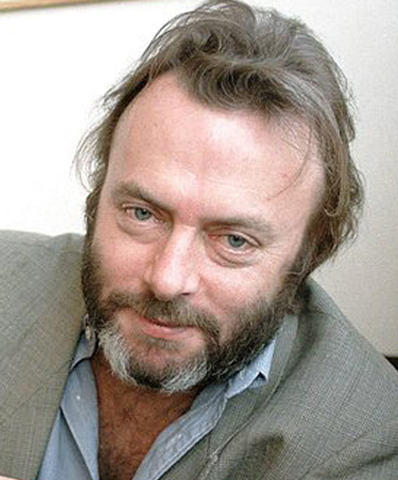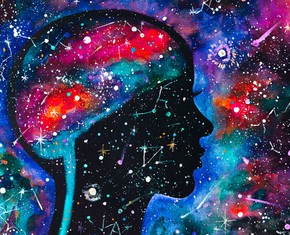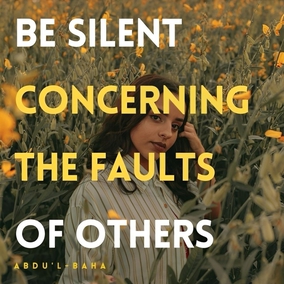The views expressed in our content reflect individual perspectives and do not represent the authoritative views of the Baha'i Faith.
The story so far: two teams debate the motion that “science refutes God.” Where do you stand?
Speaking for Team A (for atheist), physicist Lawrence Krauss makes a trinity of claims about God that he feels must be refuted in order to refute God—a trinity he claims are based on faith rather than evidence. In laying out his argument, Krauss does not so much lend positive support to the logic of a universe without God, as he negatively discusses his opponents’ epistemology (approach to knowledge), intelligence, and rationality:
Now, to refute God means refuting several claims that are all based on faith, not evidence. One, that God is necessary, two, that there is evidence for God; and three, that belief is rational. And the point is that the progress of science has shown over and over and over again that the answers to all those three questions are no. No, no, no. Now, my own scientific field is cosmology. And that’s the study of the origin and evolution of the universe as a whole. And it’s where science and religion sort of confront each other. (emphasis added)
Let’s unpack Krauss’ statement:
- He delegitimizes his opponents’ approach to knowing (without citing evidence).
- He sets up a trio of questions he believes must be answered in the negative in order to refute God.
- He claims that science refutes all three questions.
- He claims that science and religion confront each other (specifically because of the various creation myths different religious writings contain).
I’d like to examine the brass tacks part of Krauss’ assertions later. My chief interests here are the nature and implications of his argument. The claim that science not only refutes God but replaces Him is potentially earth-shaking to a person of faith.
I entered an active debate with anti-theism about ten years ago with some trepidation. In a word, I was intimidated. I knew why I believed and I could articulate it fairly well, but up until then I’d been called upon to defend my Baha’i views mostly to Christians—including my mother (an entire saga unto itself). I imagined that discussing faith and religion with college-educated anti-theists must surely be a vastly different experience and therefore alien. I expected to be out of my depth, in terra incognita. But once I’d read the so-called New Atheists—Hitchens, Harris, Dennett, Myers, and Dawkins—my trepidation turned to disbelief.

Christopher Hitchens
By way of example, I finished Christopher Hitchens’ God is Not Great thinking, “Really? That’s it?” Hitchens’ book, in its essentials, didn’t differ much from the literal, fundamentalist arguments I’d been fielding from some clergymen: assumptions based on a narrow interpretation of religion and couched in emotional and often mocking terms. The overall message, repeated throughout the works of these anti-theist philosophers is: ”You’d have to be stupid, irrational, and delusional to believe anything but what I’m proposing.”
Krauss’ debate strategy hewed close to that message—a message that does not encourage dialogue, but rather snuffs it out. No one wants to be thought of as stupid, irrational, or delusional, and the fact that some of the above-mentioned men have stellar street cred in their chosen disciplines (Hitchens was a world-class analyst of political history; Harris has a degree in neurology from Stanford) only increases their persuasive power. Implicit (and sometimes explicit) in their message is that these are very intelligent people and you are supposed to be intimidated by them, because they’re smarter than you. If they’re smarter than you and they don’t believe in God, what’s wrong with you?
The Intelligence Squared debate set up a similar paradox. We are asked to be impressed with the scientific credentials of Team A, and the fact of their extreme intelligence. One is a scientist, the other a writer. But so, too, are the members of the opposing team. Yet their intelligence does not have the same cachet that the intelligence of their anti-theist opponents does. The intelligence of the anti-theist, we are asked to believe, is evidence that really smart people don’t believe in God. The intelligence of the theists, meanwhile, is evidence that, as the French say, tout le monde peut se tromper—anyone can be fooled.
The underlying assumption is that people who do not believe in God are incapable of being mistaken in their views, are never irrational, and don’t resort to dogmatism or magical thinking. I leave it to the reader to consider and decide on the logic of that premise.
The Baha’i teachings suggest an approach to the study of reality that sets a new standard for objectivity. This standard affects the learner in his relationship to both the subject of his quest and those he may encounter along the way. These two passages from the writings of Baha’u’llah sum it up:
[The seeker] must so cleanse his heart that no remnant of either love or hate may linger therein, lest that love blindly incline him to error, or that hate repel him away from the truth. – The Book of Certitude, p. 192.
The whole duty of man in this Day is to attain that share of the flood of grace which God poureth forth for him. Let none, therefore, consider the largeness or smallness of the receptacle. The portion of some might lie in the palm of a man’s hand, the portion of others might fill a cup, and of others even a gallon-measure. – Gleanings from the Writings of Baha’u’llah, p. 8.
You May Also Like
Comments

















https://www.scienceandnonduality.com/